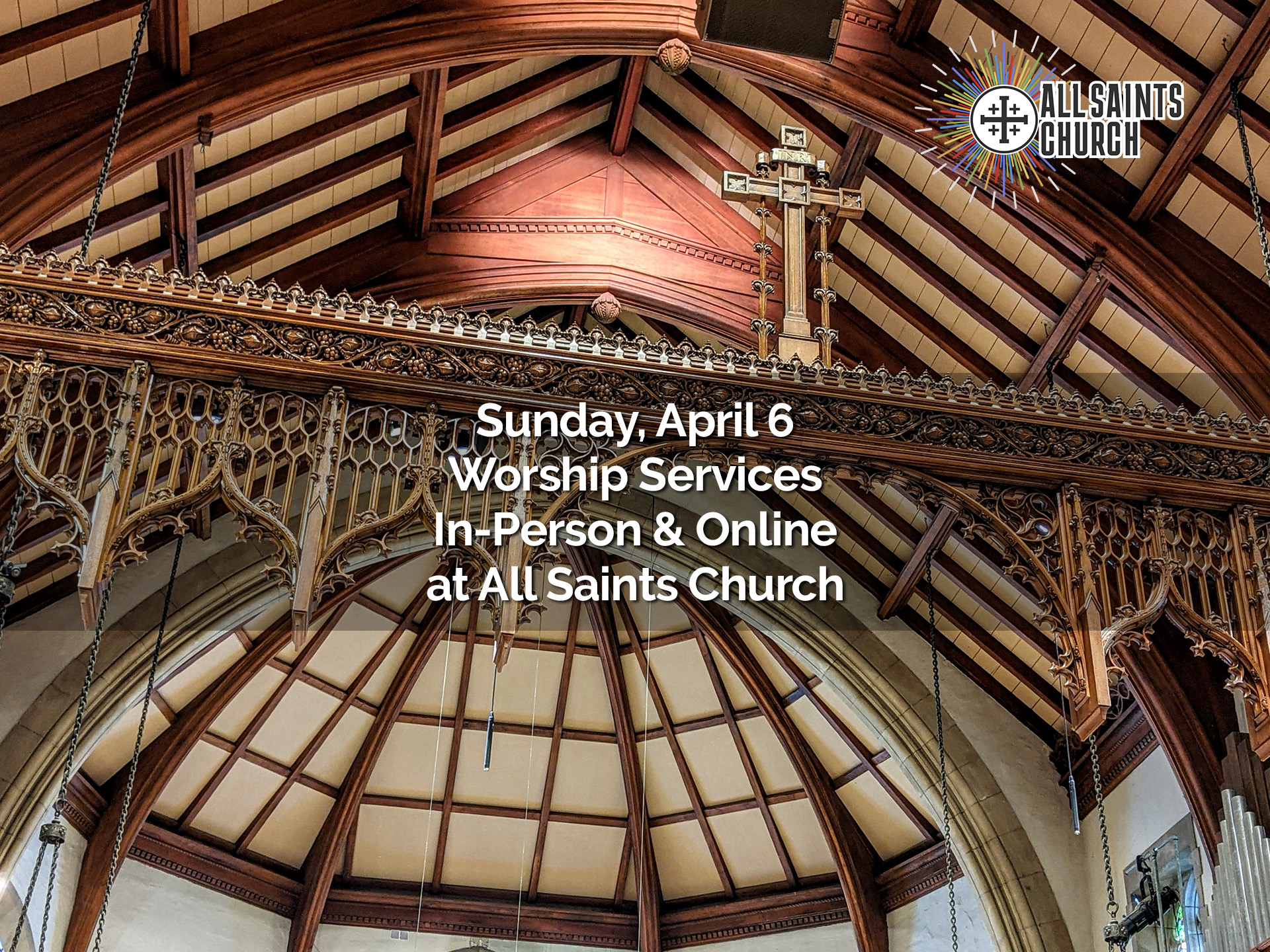The Gospel isn’t meant to be gulped down on Sunday morning, but gnawed on through the week so it really becomes a part of us. You’ve got to work at it, like a dog with a good bone! Here’s the Gospel for this coming Sunday — the Fourth Sunday of Advent — with the presence, possibilities and power of the promise of the Annunciation.
Luke 1:26-38
In the sixth month, the angel Gabriel was sent from God to a town in Galilee called Nazareth to a young woman named Mary; she was engaged to a man named Joseph, of the house of David. Upon arriving, the angel said to Mary, “Rejoice, highly favored one! God is with you! Blessed are you among women!”
Mary was deeply troubled by these words and wondered what the angel’s greeting meant. The angel went on to say to her, “Don’t be afraid, Mary. You have found favor with God. You’ll conceive and bear a son, and give him the name Jesus–‘Deliverance.’ His dignity will be great, and he will be called the Only Begotten of God. God will give Jesus the judgment seat of David, his ancestor, to rule over the house of Jacob forever, and his reign will never end.”
Mary said to the angel, “How can this be, since I have never been with a man?”
The angel answered her, “The Holy Spirit will come upon you and the power of the Most High will overshadow you–hence the offspring to be born will be called the Holy One of God. Know too that Elizabeth, your kinswoman, has conceived a child in her old age; she who was thought to be infertile is now in her sixth month. Nothing is impossible with God.”
Mary said, “I am the servant of God. Let it be done to me as you say.” With that, the angel left her.
The Backstory – What’s Going On Here?
Matthew and Luke are the only two Gospels that have Nativity stories, and of the two, Luke’s is much longer … taking up nearly 10% of the text of the Gospel. Part of this is Luke paralleling the announcement of Jesus birth to Mary with the announcement of John the Baptist’s birth to Elizabeth (1:5-25), but part of this is the sheer human detail … not just of the annunciation but of the birth. The picture of Jesus painted by Luke is by far the most vulnerable. The angel coming upon unsuspecting Mary. No room at the inn. Luke wants to make sure we remember that Jesus didn’t “beam down” from heaven a fully formed, articulate adult … but was a baby and a child. Luke wants us to feel Mary’s fear and joy. This is no surprise for a Gospel that emphasizes God’s special compassion in Christ to the poor and needy.
A few things to chew on:
Notice Gabriel’s first words to Mary, “Greetings, favored one, the Lord is with you.” and “Do not be afraid, Mary, for you have found favor with God.” God is about to invite Mary to partner with the divine in doing something
that will change the cosmos, but look at how God opens:
I am with you.
Fear not.
I love you.
Are there more powerful words than this in all of language coming from God? Imagine if we heard those words from God as clearly as Mary heard them. If we were absolutely sure that God is with us, that we don’t need to fear anything, and that God adores us. There is nothing we couldn’t do!
“God will give Jesus the judgment seat of David, his ancestor, to rule over the house of Jacob forever, and his reign will never end.” What Gabriel is announcing is something that will change things forever. Christmas is cosmic. This isn’t just remembering someone’s birthday. We are remembering that God has acted in a new and astounding way in history. That God has broken down the barriers that separate us from God and has emptied the divine self into human form. God is forever present with us, feeling our pain, sharing our joy, in a new way. We live in a changed world. We live in a world that God is intimately present with. We don’t have to ask God to be present, God is already here. Do we recognize it? Do we act like it? Do we remember it?
Try This:
“For nothing will be impossible with God.”
It’s ironic that we live in an age where we accomplish things that our ancestors would have thought unimaginable — flying through the air, seeing each other over huge distances, beaming back pictures from distant worlds
— and yet in the name of “common sense” and rationality perhaps more than ever before we limit our ideas of what God can do. One of the byproducts of our own wealth and accomplishment is we trust more and more in ourselves and less and less in God.
Yet Gabriel has a message for us, too. Our God is bigger than anything or anyone. There is no challenge that we cannot meet with a God beside us saying “I am with you. Fear not. I love you.” It will look different than you think. It will change your life. But it won’t be impossible.
This week, spend 10 minutes at the beginning of each day pondering the things in your life you are tempted to see as impossibilities. Then take them to God in prayer. Ask God to us you … use all of us … to burst through the limits of what we believe is possible. Pray the old prayer of an ancient monk: “God, don’t change my circumstances … change me. And all will be possible.”
Write this:
“Let it be done to me as you say.”
These are hard words. So many of us – particularly women, particularly people of color and other people who are routinely and systemically marginalized – have little or no choice about much of what is done to them. These are so often words said in resignation because we are too tired of fighting or just don’t see the point.
OK, whatever. I give up. Let it be done to me as YOU say. Not as I say, but as YOU say.
We don’t know Mary’s tone of voice when she said these words. We don’t know what combination of love and honor, resignation and fear was gripping her heart and her voice when these words left her mouth. But we do trust in God’s goodness … and so that whatever God desired for Mary was out of deep love for her, deep respect for her, deep honoring of her.
This week in your journaling, write about the parts of your life where it feels like you have no control over what is done to you. Then write about the life God dreams for you. The life where what is done to you, what happens to you is about God’s deepest desire for your life.
Angels in the mirror
Where are the angels?
We see and sing of them everywhere at Christmas time. Winged creatures that flit about … sometimes with glitter and pipe cleaner halos over their heads. In the stories of Christmas they are as normal as the animals in the
manger … but outside the stories?
To the early hearers of Luke’s Gospel, news that an angel visited Mary was probably not something that turned their head too much. They believed in a God who talked with the people through intermediaries. It had happened all throughout their history. Why not now?
But what this angel, Gabriel, announced, changed everything. This angel announced that God was doing a new thing. God was no longer going to be using intermediaries to relate to humanity. God was going to become human and be with us directly. God would be Emmanuel … God with us.
In essence, Gabriel came to Mary to announce his retirement. His job was being outsourced … to God … and then in Pentecost to us.
At Christmas, we remember that God became human in Jesus, but we also know what the next step in that process was. Through baptism, we become Christ’s body. We become, as Paul says, “ambassadors of Christ.”
We are the angels now.
Think about that. We are the Christmas angels. We are the ones who are announcing that God can do and will do wonderful things … as long as people are willing to say like Mary “Here am I, the servant of the Lord; let it be with me according to your word.”
Angels are no longer strange winged seraphs. They have names like Sarah and Trula and Bob and Jason and Jonah and Imani. They are right among us. They are us.
These angels come at us in surprising times and places. They give us disturbing news, news that perplexes us. They remind us that God will come upon us and overshadow us. They rock are world.
How are we open to seeing them?
How are we open to being them?
How, this very day, can we bear God’s message to the world?
How can we tell the world, “Fear not, the Lord is with you.”
How can we invite the world to say in reply, “Here am I.”
. . . . . . . . . . . . . . . . . . . . . . .
Check out the rest of Sunday’s readings
The Lectionary Page has all of the readings for this Sunday and every Sunday – just click here.
Collect for Sunday: Pray this throughout the week as you gnaw on this Gospel
Purify our conscience, Almighty God, by your daily visitation, that your Son Jesus Christ, at his coming, may find in us a mansion prepared for himself; who lives and reigns with you, in the unity of the Holy Spirit, one God, now and for ever. Amen.
Want to read more?
“The Text This Week” is an excellent online resource for anyone who wants to dive more deeply into the scriptures for the week.



